 Spink & Son was founded in the UK in 1666 and today have companies in USA, Switzerland, China, Singapore and Japan. The China Company was established in Hong Kong in 2011. Spink is well known in South East Asia having been conducting joint auctions with other well-known companies from the 1980s.
Spink & Son was founded in the UK in 1666 and today have companies in USA, Switzerland, China, Singapore and Japan. The China Company was established in Hong Kong in 2011. Spink is well known in South East Asia having been conducting joint auctions with other well-known companies from the 1980s.
The latest Spink coin and banknotes auction in Hong Kong took place on May 10 and 11. The auction took place because of the pandemic.
This did not actually reflect negatively on the prices. The total sales were HK$18,550,320, or more than THB 75 million. The banknotes sold for a total value of HK$13,179,180 and coins were sold for a total of HK$5,371,149.
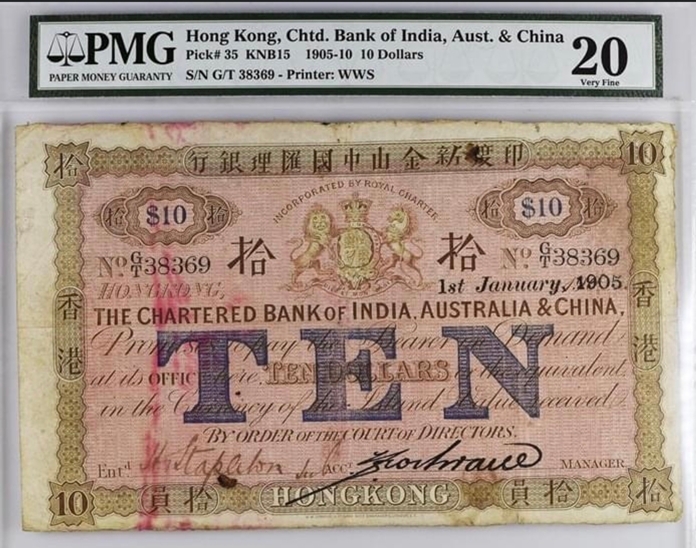
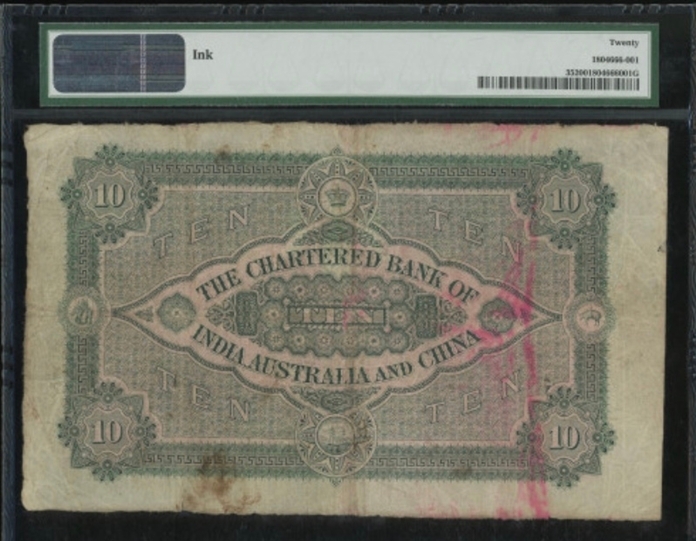
The most expensive banknote was a Hong Kong, Chartered Bank of India, Australia and China, 10 Dollar denomination dated 1st January 1905. The note sold for HK$696,000 even it was only graded by Paper Money Guaranty, PMG, to be 20, which is Very Fine. Only three of these banknotes are known to exist. Last time it was sold was 20 years ago, so for this note collectors cannot be picky. The printer of the note was W.W. Sprague & Co. Ltd. England.
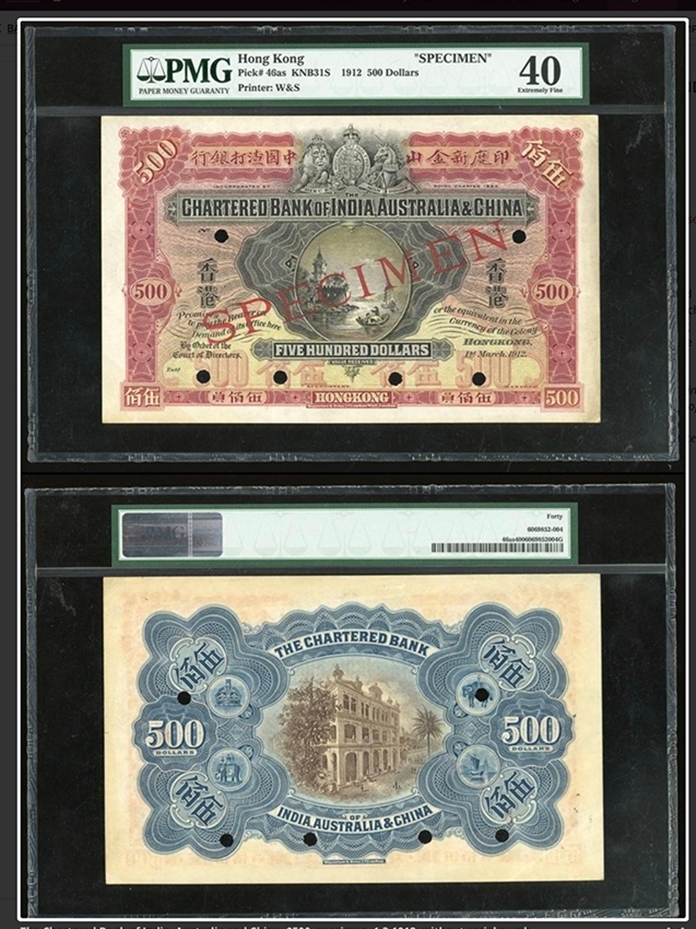
In recent years interest for specimen banknotes have got the attention of many collectors. It can be assumed that some of the banknote printers have sold from their archives, so material never seen before has become available. At the Spink sale a specimen 500 dollar ultra rare Hong Kong, Chartered Bank of India, Australia and China dated 1.3.1912 sold for HK$600,000 even with 6-hole punch cancelations. The note was printed by Waterlow & Sons Ltd., England and graded by PMG to be 40, Extremely Fine.

From the Republic of China, a One Dollar Specimen coin 1921 struck in gold with the portrait of President Xu Shi Chang sold for HK$600,000. On the reverse of this Commemorate Coin is the Huai Ren Hall. The coin was struck for the inauguration of President Xu in the Tenth Year of the Republic of China.
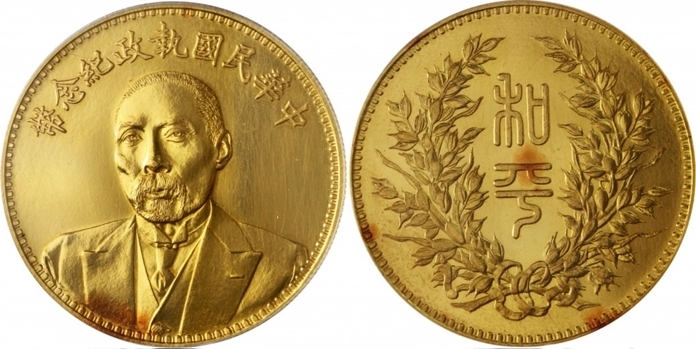
Another One Dollar Specimen coin from 1924 struck in gold was sold for HK$624,000. On the obverse is the portrait of President Duan Qi Rui. The inscription on the reverse reads “He Ping” in Chinese, meaning Peace.
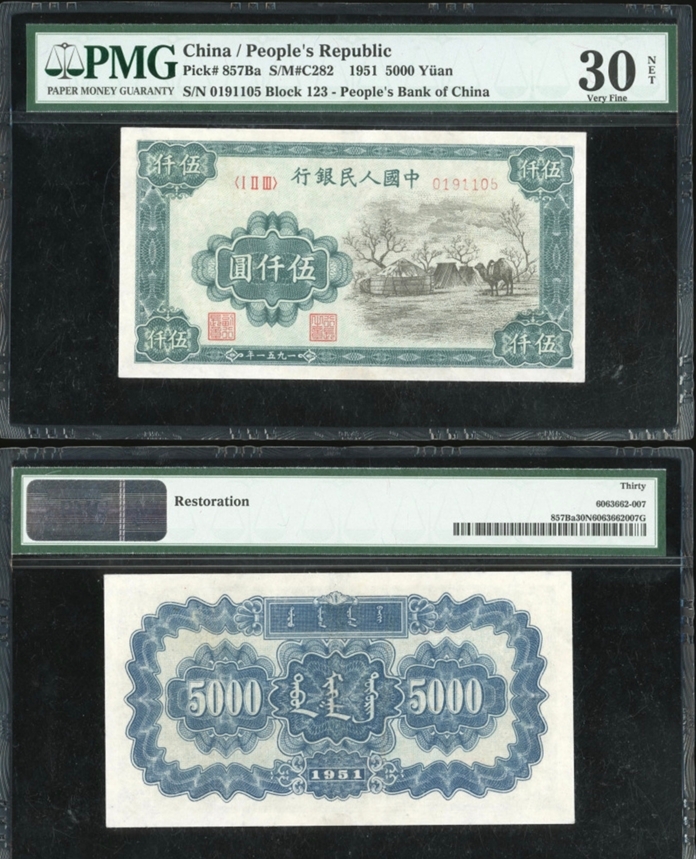
Banknotes from Peoples Republic of China are popular. A 5000 Yuan 1951 issue showing a traditional Mongolian Yurt. I understand it is a portable, round tent covered with skins and used as dwellings by nomadic groups in the steppes of Central Asia. The banknote was graded by PMG to be 30, Very Fine, and sold for HK$300,000.
Kelvin Cheung, Global Head of Banknotes, Spink China, expressed that the COVID-19 has not affected the local Banknote market. The Chinese and Hong Kong coins have even gone up more in value. Since the auction was behind closed doors and viewing was restricted, Spink China uploaded short video clips of important items so prospective bidders could view them in different angles under natural light.
Spink China is conducting an e-auction on the 12th of July, and plans a floor auction on 18th and 19th of August 2020 in conjunction with the Hong Kong Coin Show held from 21st to 23rd of August.
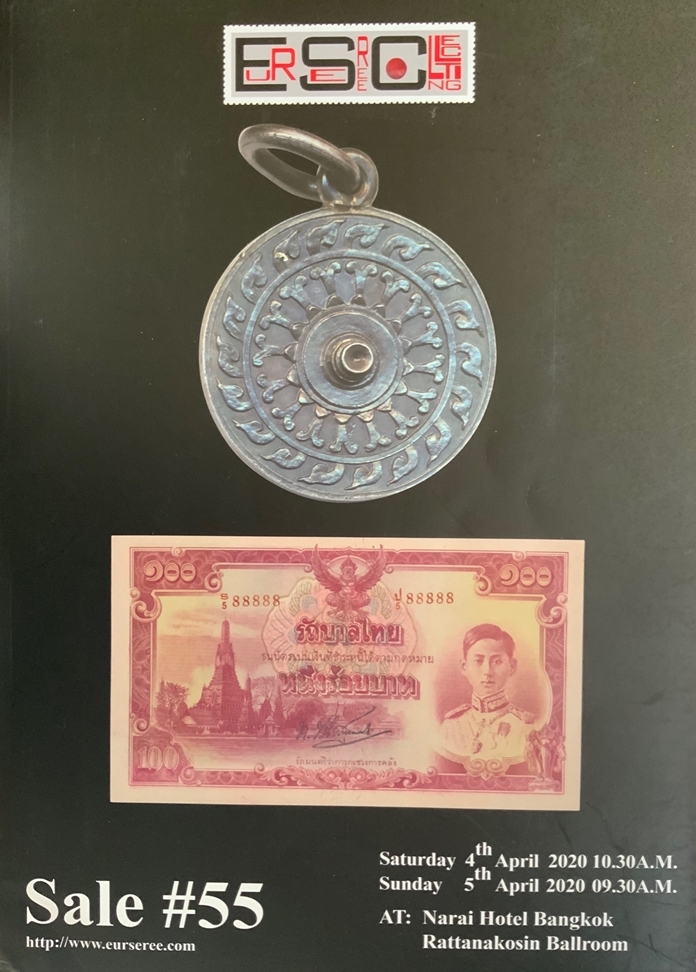
The Eur-Seree Collecting Co in Bangkok planned their Sale #55 to be conducted April 4 and 5, and the catalogue was printed. The dates were postponed to April 25 and 26 because of the pandemic. Depending on Government restrictions Vitoon Eurtivong, CEO of Eur-Seree, hopes to conduct the sale at the end of June or beginning of July.
Some years ago, Eur-Seree had as many as 1,000 floor bidders in the room for a sale. Normally 400 to 500 hundred collectors and dealers turn up for the popular sales. Vitoon Eurtivong plans for the coming sale to have some 20 of his staff operating telephones for prospective bidders not being able to attend. In the future the company will also be conducting live auctions.
Vitoon Eurtivong is of the opinion that in Thailand the buyers prefer to be at the auctions for inspection and bidding. At the sales other dealers are invited to exhibit what they have for sale so the ones attending do have a chance to buy something at fixed prices. Of great importance also at the auction is meeting other collectors and dealers to exchange information and have a social gathering.
 |
 |
 |





